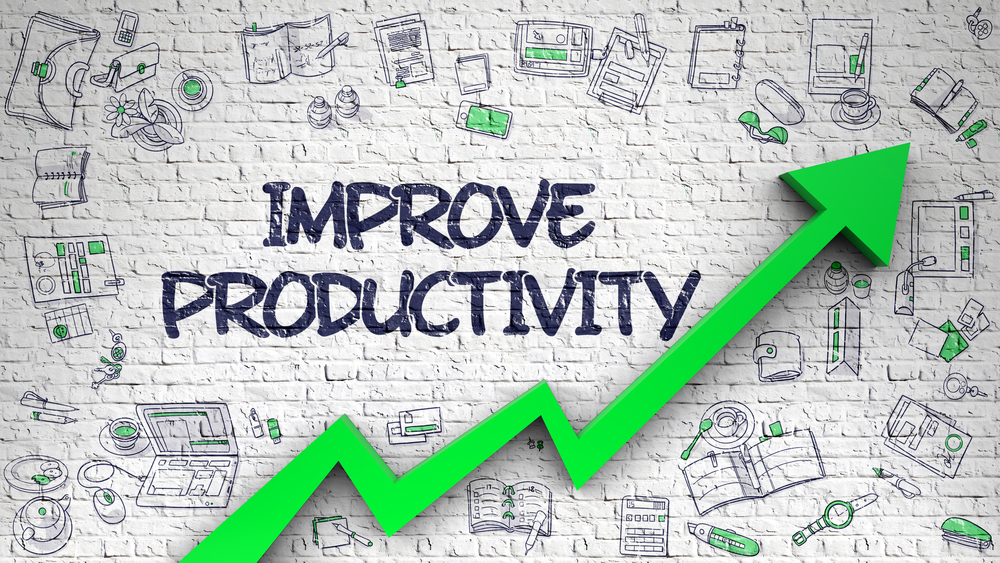In today’s fast-paced business environment, enhancing employee productivity is crucial for achieving organizational goals and maintaining a competitive edge. One effective way to boost productivity is through the development of tailored mobile and web applications. By providing employees with the right tools and resources, app development can streamline workflows, enhance collaboration, and ultimately lead to increased efficiency. Here’s how app development can significantly improve employee productivity.

Table of Contents
Toggle1. Streamlined Communication
Effective communication is key to productivity. Custom apps can facilitate instant messaging, video conferencing, and file sharing, ensuring that employees can communicate seamlessly, regardless of their location. This streamlined communication reduces delays, enhances collaboration, and keeps team members aligned, leading to faster decision-making and execution of tasks.
2. Task Management and Organization
App development can include robust task management features that allow employees to create, assign, and track tasks easily. With clear visibility into project timelines, deadlines, and responsibilities, employees can prioritize their work more effectively. Task management apps help eliminate confusion and ensure that everyone is on the same page, contributing to improved productivity.
3. Access to Resources Anytime, Anywhere
Mobile apps provide employees with access to essential resources and tools on-the-go. Whether it’s company documents, training materials, or project updates, employees can retrieve information whenever and wherever they need it. This flexibility empowers employees to work more efficiently, as they can complete tasks without being tethered to their desks.
4. Automation of Repetitive Tasks
Many routine tasks can be automated through app development, freeing employees from mundane responsibilities. For example, apps can automate data entry, report generation, and scheduling. By reducing the time spent on repetitive tasks, employees can focus on more strategic activities that require creativity and critical thinking, ultimately boosting overall productivity.
5. Enhanced Collaboration Tools
Collaboration is essential for teamwork and productivity. App development can provide platforms for project collaboration, enabling team members to work together on shared documents, participate in discussions, and track project progress in real time. Enhanced collaboration tools foster a sense of teamwork and accountability, driving productivity across the organization.
6. Real-Time Data and Analytics
Custom apps can provide employees with real-time data and analytics, enabling them to make informed decisions quickly. Access to relevant data allows employees to identify trends, track performance metrics, and adjust their strategies accordingly. By leveraging data-driven insights, employees can optimize their workflows and enhance productivity.
7. Integration with Existing Tools
App development can integrate with existing tools and software, such as CRM systems, project management platforms, and communication tools. This integration eliminates the need for employees to switch between multiple applications, streamlining workflows and saving time. A unified platform enhances efficiency and allows employees to focus on their core responsibilities.
8. Training and Onboarding Solutions
Mobile apps can serve as platforms for employee training and onboarding, providing easy access to learning materials, tutorials, and assessments. By offering engaging and interactive training experiences, companies can help new employees ramp up more quickly and ensure that existing employees are continuously developing their skills. Effective training leads to improved performance and productivity.
9. Time Management Features
App development can include time-tracking features that help employees monitor their work hours and productivity levels. By understanding how they allocate their time, employees can identify areas for improvement and optimize their work habits. Time management tools encourage accountability and can lead to more efficient use of time.
10. Employee Engagement and Well-Being
Apps can facilitate employee engagement initiatives, such as feedback surveys, wellness programs, and recognition platforms. Engaged employees are typically more productive, as they feel valued and connected to their organization. By promoting employee well-being through app development, companies can foster a positive work environment that enhances productivity.
Conclusion
App development plays a pivotal role in improving employee productivity by streamlining communication, enhancing collaboration, and providing access to essential resources. Through automation of repetitive tasks and integration with existing tools, businesses can optimize workflows and empower employees to focus on high-value activities. Real-time data, training solutions, and time management features further contribute to a more productive workforce. As organizations continue to adapt to changing work environments, investing in app development is crucial for driving employee efficiency, satisfaction, and overall success. By leveraging mobile and web applications, businesses can create a culture of productivity that benefits both employees and the organization as a whole.


No responses yet